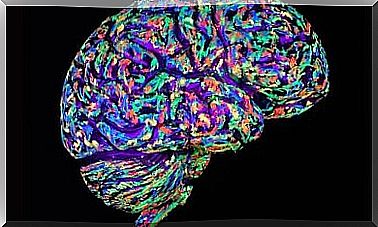5 Cognitive Biases That Favor Those In Positions Of Power

Thinking rationally requires effort, preparation and reliable sources of information. We tend to let our fears, similarities and other things guide us. We sometimes do not question our ideas (especially if they have to do with what we had already thought) and we just approve or dislike them. Depending on how we feel. This is a clear example of how cognitive biases work.
During political elections and other activities in which people have power, people tend to exploit cognitive biases to manipulate the opinions of others. People end up believing that what is good for the minority is also good for the majority (or the other way around). Let’s look at five of these control mechanisms:
Karma – cognitive biases
This is one of the most destructive cognitive tendencies because they lead to injustice. It consists of a wrong and simplified interpretation of the principle of action and reaction. It is assumed that something cannot happen to someone if they have not done something to make it happen.

We believe that if someone is in a bad situation, it is because they deserve it. The poor are guilty of their poverty, the victims are guilty of aggression, and the sick are guilty of pain. Although there is no data to support this, we often think that there is always something “behind” every bad situation.
This is a common bias because it gives us the illusion of being in a controllable world. It makes us believe that there is always something we can do to not end up like them. This tendency carries its own amplifier in itself, which continues it.
Confirmation bias
The confirmation tendency consists of only giving credit to the data that is confirmed by our already established beliefs. In this case, people do not consider the source of this data or compare it with different data, they just believe in it. Perhaps this disorder also carries its own amplifier: it favors our cognitive economy, at least in the beginning.
We could especially apply this to the political election example or a religious election. In general, these beliefs are inherited and never questioned. People do not really know other sides, they automatically believe that their faith is the right one. Therefore, the only data they consider valid are those that support their way of thinking.
Frame effect
This cognitive disorder is directly related to the media. It has to do with the tendency to jump to different conclusions, depending on how we access the information or how it is presented to us.

This is a classic example: “More than 30% disagree with Paco”. Instead of saying that 70% of the population agrees with Paco, the focus is on the disagreement, giving it a negative connotation instead of a positive one.
Illusory correlation
This refers to the tendency to establish links between two variables, even though the correlation does not really exist. In this way, the union of two realities comes from invalid elements. It generally seeks to uncover a situation or create an illusion of truth.
A very common example of this is when structural facts are linked to specific, unrelated events. For example, that the city flourished when Governor “X” was in charge without considering that people simultaneously discovered an oil field. The reason for the progress was not the governor, but the discovery of the oil field. It can also happen the other way around.
Irreparable loss
This is also one of the most damaging cognitive tendencies because it is at the root of intolerance. It consists in attaching ourselves to our ideas as if they were a real part of us as individuals.
This is why we consider changing our minds a difficult task. On the one hand, we believe that we can get rid of something we consider “ours”. We see it as a loss. On the other hand, it involves a great deal of effort. Removing ourselves from what we believe in and embrace other mindsets is not an easy thing to do. It can be difficult, but it can also be fascinating.

It is important to be aware of cognitive biases so that you can detect them and regulate their influence on your thoughts. It is important to do research if you want to be well informed. However, be careful about relying on reliable sources. Ultimately, if you want to be free of cognitive biases, pay attention to things that people with interests can express (people in positions of power, in particular).









